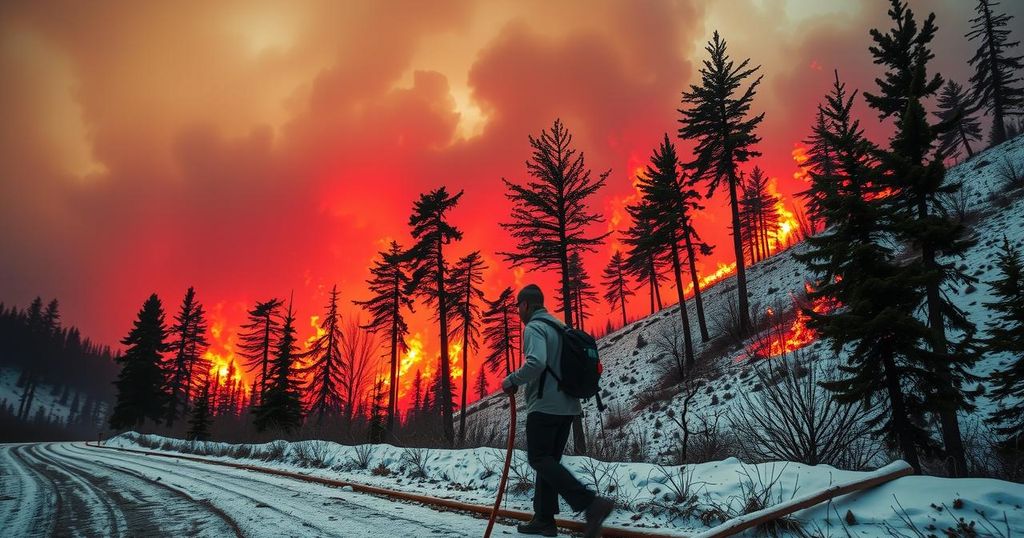Public Accountability Emerges Amidst Los Angeles Wildfire Crisis

The article discusses the changing public perception regarding the factors contributing to wildfire disasters in Los Angeles, particularly highlighting a shift from blaming climate change to demanding accountability from political leaders. Residents are voicing their frustration over budget cuts and absence of leadership during the crisis, emphasizing the need for responsible governance and transparency in disaster management.
In recent years, public discourse in the United States regarding natural disasters, particularly wildfires, has significantly shifted. The devastating wildfires that have engulfed Los Angeles, causing loss of life and destruction to communities such as Pacific Palisades, have prompted citizens to redirect their frustration towards government officials rather than accepting climate change as the sole cause. This shift reflects a growing desire for accountability among those in power.
Residents affected by the fires have expressed outrage at their leaders, particularly in light of decisions that seem to prioritize budget allocations away from crucial wildfire prevention resources. For instance, Los Angeles Mayor Karen Bass faced criticism for her absence during the crisis and for cutting the fire department’s budget by nearly $17.6 million. Additionally, California Governor Gavin Newsom has drawn backlash for reportedly slashing $150 million from wildfire prevention while maintaining most funds for climate initiatives.
This questioning of political responsibility stands in stark contrast to previous narratives that often deflected blame exclusively on climate conditions, highlighting a burgeoning movement among the populace to demand accountability and transparency from governmental agencies.
The background of the recent wildfires in Los Angeles speaks to a larger pattern of discontent with government performance during natural disasters. Climate change has been commonly cited as a primary cause for the increase in frequency and intensity of such disasters. However, the recent wildfires have catalyzed a reevaluation of these narratives, particularly as the public begins to scrutinize the decision-making and budgetary priorities of their elected officials.
In conclusion, the wildfires in Los Angeles serve as a critical juncture in understanding public sentiment regarding governmental accountability. The increasing scrutiny of budget cuts and leadership absence amidst crises has the potential to reshape how political leaders are perceived in their roles as protectors of public safety. As citizens become more vocal about their dissatisfaction, it underscores a broader demand for accountability in governance, particularly during emergency situations.
Original Source: www.telegraph.co.uk






